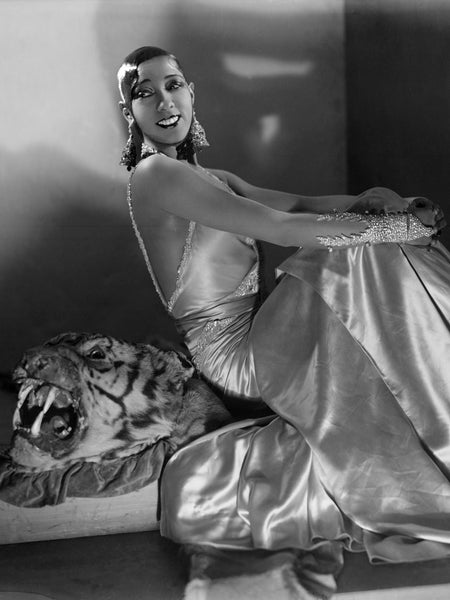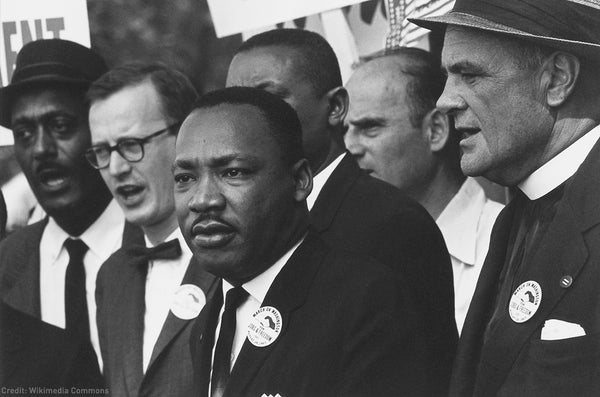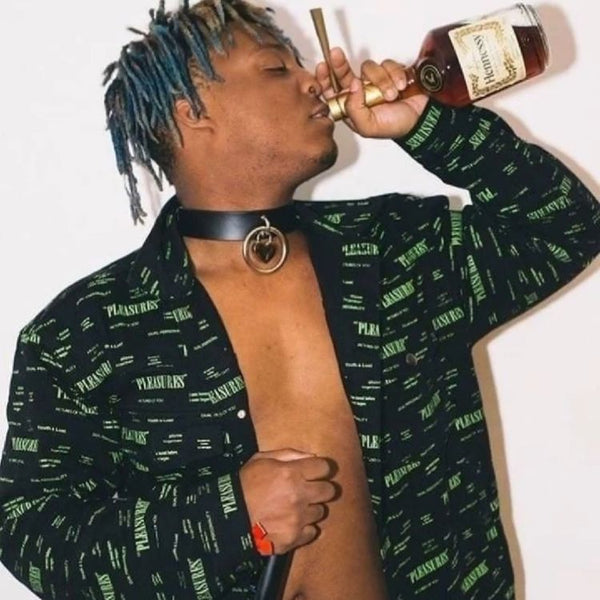Henny, Hip Hop, and the History of Civil Rights: Why Hennessy Forever Holds a Place in Rap Music
It’s doubtful Drake had the Civil Rights Movement in mind when he wrote “I need a one dance, Got a Hennessy in my hand,” but there’s a surprising connection between Hennessy and Black civil rights.

Hennessy Cognac is the most popular brand of liquor on the Internet. At least, that’s according to a new market study released last month, sponsored by English artisanal brewery, Fentimans.
Over the course of 2021, the study analysed the popularity of various spirits brands by considering social media interactions such as Instagram followers, Twitter mentions, volumes of web searches and media mentions. Hennessy Cognac topped the score board with a score of 54.02.

Apart from Henny, the four other brands making it to Top 5 include Au Vodka (a British vodka brand), Captain Morgan Rum, Smirnoff Vodka and Ciroc Vodka.
What was the reason for Hennessy’s top position? Interestingly, the study attributed Hennessy’s online virality to “significant mentions within rap songs, especially from a musician as famous as Drake.”
That’s unsurprising to people familiar with hip hop music. Hennessy is the liquor of choice for many African American rappers. From Drake and 2Pac, to Kanye West and 50 Cent, the words “Hennessy” or “Henny” have been mentioned in the lyrics of close to a thousand songs from hip hop artists.
Cognac and Black culture really go way, way back
However, we’re just skimming the surface here. Others have argued that Hennessy was not popularised by hip hop. It was quite the opposite. Hennessy first supported Black culture. Really? How so?
New York reporter Bianca Holman has written that the story between Hennessy and Black culture is much richer, going back several decades into the World War II period. Hennessy was one of the first luxury brands to treat its African American audience with respect.

Cognac’s popularity with amongst African Americans began sometime before World War II, when many African American solders stationed in southwest France were introduced to the grape brandy. This connection was likely heightened because African American jazz musicians were highly popular in Parisian clubs. For these African Americans, fine cognac left a better taste in their mouths than American whiskey. Cognac was a welcoming spirit from a country that celebrated, rather than disparaged, Black culture. The irony was stinging: the liquor of their own country, American whiskey, originated from the American south and sometimes even had brands named after Confederate leaders.
Henny’s investments in an African American audience
After WWII, Hennessy was quick to notice the affinity between African Americans and cognac. They took a very bold decision (for luxury brands at that time) to place ads in famous African American magazines with Black models in the 1950s.

Apart from investing advertising-dollars in its Black audience, it should be noted that persons tied to Hennessy’s ownership have been supporting Black rights for a long time.
As far back as 1896, Jacques Richard Maurice Hennessy (the third generation of the family dynasty that runs Hennessy cognac) visited New York and saw deplorable working conditions for Blacks. He started a non-profit to fight for African American workers’ rights, which eventually merged with other organisations to become the New York-based civil rights organisation, National Urban League.

Then in 1909, Hennessy became the first corporate sponsor of the famous African American civil rights organisation, NAACP. Josephine Baker (remember her?) was appointed brand ambassador in the 1950s. And during the zenith of the US Civil Rights movement, Hennessy demonstrated boardroom racial diversity when it hired African American athlete Herb Douglas to serve as a vice president - only the third ever Black person to reach the position of Vice President of a large corporation in America.

(Image Source: Library of Congress)

As can be seen, at a time when the African American community was left out in the cold, or worse - shunned - by many, Hennessy was one of the very few companies that actually went out on a limb to provide representation and acknowledgment to the Black consumer. This is no mean feat considering the human instinct to conform and how large companies tend to be conservative in adopting unpopular political stances.
Even today, Hennessy continues to give to the African American community, pledging millions of dollars to organisations dedicated to assisting the Black community.
Hip Hop gives back to Hennessy

With a rich, long history of authentic engagement with African American people, Hennessy has carved out an unflinching sense of loyalty from its Black consumers. This brand loyalty is something money cannot buy.
Hip hop’s love for Henny is merely a reflection of the Black community’s loyalty to the brand. 2Pac raps that Hennessy is a favourite when he “flosses” his enemies:–
It’s either him or me, Champagne, Hennessy/ A favourite of my homies when we floss, on our enemies. (How Do You Want It)
Snoop Dogg’s “Hennessy N Buddha” repeatedly mentions pouring a “tall glass of Hennessy” in his lyrics. And let’s not forget SoundCloud rapper Juice WRLD’s unreleased melodic ode “Hennessy” which probably has a good 80% of its lyrics composed entirely of the brand name “Hennessy”.

It’s hard to imagine that the early owners of Hennessy could have predicted that giving to the African American cause since 1898 would have yielded a brand loyalty that would reward the brand a hundred times over for more than 120 years.
Black pop culture has come to be so tightly intertwined with Hennessy today. No longer is there a need to pay a cent for rappers to endorse the brand, or to feature the brand in chart-topping songs. Non-financially motivated celebrity endorsements are also more sincere and go further in strengthening the brand. What’s more, the profound cultural influence of hip hop extends far beyond African American communities, to diverse groups of millennials and Generation Z consumers around the world - and its influence continues well into 2022. Almost every other brand can only dream about attaining such a status.
There are few authentic stories as inspiring as this in the realm of celebrity-endorsed spirits. Hennessy has been an early and unyielding advocate for African American rights, right from the beginning– even at an era when racial issues were not pretty. 120 years later, influential figures of Black communities now have their old friend, no, homie’s back, acting as Hennessy’s greatest consumers and advocates. And we say with absolute certainty, good for Hennessy!

@charsiucharlie







